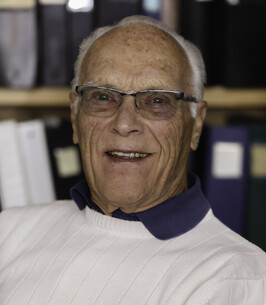L. Andrew Staehelin passed away on Sept. 29 in Boulder. He was born February 10, 1939, in
Sydney, Australia, but was then raised and received his education in Switzerland, where he
earned his doctoral degree in natural sciences from the Swiss Federal Institute of Technology in
Zurich in 1966.
In 1965 Andrew married Margrit Weibel, and in the course of their life together, they made their
home on three continents. Their sons, Daniel, Philip and Marcel were also born in three different
countries. They eventually settled in Boulder in 1970, where the whole family enjoyed all that
Boulder had to offer – especially the outdoors. Nearly every weekend was dedicated to hiking or
skiing (both cross-country and downhill), and summers meant camping trips throughout the
western states. But they never lost their international travel bug. They regularly visited their
extended families in Switzerland (and less often in Australia), and they travelled extensively
around Europe, returning most often to their favorite spot in Corsica.
Andrew’s career started in New Zealand, when following his PhD studies, he accepted a research scientist position with the Department of Scientific and Industrial Research in Wellington. In
1969 he took up a position with Harvard University, and in 1970 he joined the newly created
Department of Molecular, Cellular and Developmental Biology at the University of Colorado,
Boulder. He was a proud member of that department until his retirement in 2006. During his 36
years with CU, he also took advantage of the sabbatical leave system to work at other universities to train in new experimental techniques and to explore new biological systems. His
first sabbatical leave in Freiburg, Germany, was made possible by a Senior Humboldt Award. He
then did two sabbaticals at his alma mater in Zurich, and for his final sabbatical he returned to
Australia to the University of Melbourne. After his retirement, he served as Professor Emeritus,
where he dedicated himself to writing research papers and research reviews with a historical
perspective.
Andrew was known as a stimulating and inspiring teacher, who particularly enjoyed the
challenges of teaching the large ‘Introduction to Molecular and Cellular Biology’ and ‘Cell
Biology’ classes. But his work in “the lab” is where he trained the next generation of scientists,
and his many graduate students and postdoctoral fellows that worked in his laboratory knew him
as a tough but fair helmsman. His teaching at CU was recognized with two teaching awards over
the years.
Andrew’s lifelong fascination with the relationship between cell structure and cell function was
the hallmark of his scientific research. As a graduate student in Zurich, he had the opportunity to
learn freeze-fracture electron microscopy from its inventor, Professor Hans Moor. This
introduced him to the concept of using cryofixation methods to preserve cells in their natural
state for electron microscopic analysis. His incessant drive to improve these techniques
culminated with the introduction of high-pressure freezing technique to the cell biological
research community. This freezing technique has now become the gold standard for studying the
structure of cells at the nano-scale level of resolution. During the final years of his research
career, he pushed his analyses into the 3-dimensional world of cells using electron tomography techniques. His scientific CV includes close to 300 articles in scientific journals as well as
several authored and edited books.
Andrew greatly enjoyed being able to travel to scientific meetings around the world. Perhaps the
most memorable event was when he and Margrit witnessed the classical Japanese ceremony
associated with the awarding of the Japan Prize in 1993, which was held in the presence of the
Emperor Akihito and his wife. During the subsequent reception, Andrew and Margrit
unexpectedly were given the opportunity to chat with the Emperor.
Andrew’s list of awards and recognitions included membership in the German National
Academy of Sciences Leopoldina, being an elected Fellow of the American Academy of the
Advancement of Sciences (AAAS), and serving as an elected Fellow of the Society of Plant
Biologists. His service in the research community also included establishing the Plant Cell Wall
Gordon Conference meetings. Locally, Andrew was known for his efforts to educate the public
about genetically engineered plants, often writing newspaper editorials that helped explain
complex scientific concepts in simple, accessible language. Recognizing the need to significantly
increase food production to feed more people on less land and with less water, he championed
the need to exploit the best plant breeding techniques, as well as the best traditional, organic,
regenerative and greenhouse cultivation methods.
Andrew was predeceased by his son Marcel and his sister Roslind. He is survived by his wife,
Margrit, his son Philip (living in Prague), his son Daniel (living in the Philippines), and his grandchildren Andrea (RI), Gabriel (CO), Oliver (Italy) and Alexa (Czech Republic), as well as a
sister and a brother (living in Switzerland).
The family is planning a small private service, to be followed by a Celebration of Life for
friends, colleagues and acquaintances at a later date. In lieu of flowers, contributions can be
made to his favorite charity that educates girls in Afghanistan.
(www.centralasiainstitute.org/donate/)
To order memorial trees or send flowers to the family in memory of Lucas Staehelin, please visit our flower store.
Sydney, Australia, but was then raised and received his education in Switzerland, where he
earned his doctoral degree in natural sciences from the Swiss Federal Institute of Technology in
Zurich in 1966.
In 1965 Andrew married Margrit Weibel, and in the course of their life together, they made their
home on three continents. Their sons, Daniel, Philip and Marcel were also born in three different
countries. They eventually settled in Boulder in 1970, where the whole family enjoyed all that
Boulder had to offer – especially the outdoors. Nearly every weekend was dedicated to hiking or
skiing (both cross-country and downhill), and summers meant camping trips throughout the
western states. But they never lost their international travel bug. They regularly visited their
extended families in Switzerland (and less often in Australia), and they travelled extensively
around Europe, returning most often to their favorite spot in Corsica.
Andrew’s career started in New Zealand, when following his PhD studies, he accepted a research scientist position with the Department of Scientific and Industrial Research in Wellington. In
1969 he took up a position with Harvard University, and in 1970 he joined the newly created
Department of Molecular, Cellular and Developmental Biology at the University of Colorado,
Boulder. He was a proud member of that department until his retirement in 2006. During his 36
years with CU, he also took advantage of the sabbatical leave system to work at other universities to train in new experimental techniques and to explore new biological systems. His
first sabbatical leave in Freiburg, Germany, was made possible by a Senior Humboldt Award. He
then did two sabbaticals at his alma mater in Zurich, and for his final sabbatical he returned to
Australia to the University of Melbourne. After his retirement, he served as Professor Emeritus,
where he dedicated himself to writing research papers and research reviews with a historical
perspective.
Andrew was known as a stimulating and inspiring teacher, who particularly enjoyed the
challenges of teaching the large ‘Introduction to Molecular and Cellular Biology’ and ‘Cell
Biology’ classes. But his work in “the lab” is where he trained the next generation of scientists,
and his many graduate students and postdoctoral fellows that worked in his laboratory knew him
as a tough but fair helmsman. His teaching at CU was recognized with two teaching awards over
the years.
Andrew’s lifelong fascination with the relationship between cell structure and cell function was
the hallmark of his scientific research. As a graduate student in Zurich, he had the opportunity to
learn freeze-fracture electron microscopy from its inventor, Professor Hans Moor. This
introduced him to the concept of using cryofixation methods to preserve cells in their natural
state for electron microscopic analysis. His incessant drive to improve these techniques
culminated with the introduction of high-pressure freezing technique to the cell biological
research community. This freezing technique has now become the gold standard for studying the
structure of cells at the nano-scale level of resolution. During the final years of his research
career, he pushed his analyses into the 3-dimensional world of cells using electron tomography techniques. His scientific CV includes close to 300 articles in scientific journals as well as
several authored and edited books.
Andrew greatly enjoyed being able to travel to scientific meetings around the world. Perhaps the
most memorable event was when he and Margrit witnessed the classical Japanese ceremony
associated with the awarding of the Japan Prize in 1993, which was held in the presence of the
Emperor Akihito and his wife. During the subsequent reception, Andrew and Margrit
unexpectedly were given the opportunity to chat with the Emperor.
Andrew’s list of awards and recognitions included membership in the German National
Academy of Sciences Leopoldina, being an elected Fellow of the American Academy of the
Advancement of Sciences (AAAS), and serving as an elected Fellow of the Society of Plant
Biologists. His service in the research community also included establishing the Plant Cell Wall
Gordon Conference meetings. Locally, Andrew was known for his efforts to educate the public
about genetically engineered plants, often writing newspaper editorials that helped explain
complex scientific concepts in simple, accessible language. Recognizing the need to significantly
increase food production to feed more people on less land and with less water, he championed
the need to exploit the best plant breeding techniques, as well as the best traditional, organic,
regenerative and greenhouse cultivation methods.
Andrew was predeceased by his son Marcel and his sister Roslind. He is survived by his wife,
Margrit, his son Philip (living in Prague), his son Daniel (living in the Philippines), and his grandchildren Andrea (RI), Gabriel (CO), Oliver (Italy) and Alexa (Czech Republic), as well as a
sister and a brother (living in Switzerland).
The family is planning a small private service, to be followed by a Celebration of Life for
friends, colleagues and acquaintances at a later date. In lieu of flowers, contributions can be
made to his favorite charity that educates girls in Afghanistan.
(www.centralasiainstitute.org/donate/)
Photo Gallery
Guestbook
Visits: 6
This site is protected by reCAPTCHA and the
Google Privacy Policy and Terms of Service apply.
Service map data © OpenStreetMap contributors





